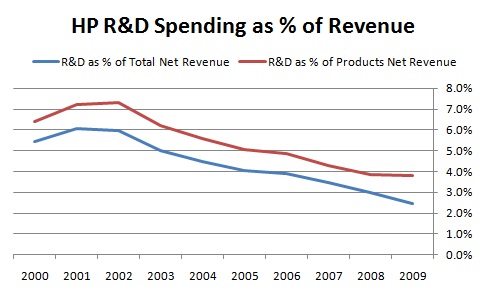
I'm writing my first blog post for Vivit on the first day of 2012, so it seems appropriate to consider the last 12 months as well as the future for Hewlett Packard from a user-perspective.
HP Discover
Along with other members of the Vivit board, I attended the HP Discover technology conference in Vienna in December. The board uses the opportunity of these twice-yearly conferences in Europe and the US to meet one another and prepare the Vivit strategy, as well as to meet our members and HP executives. The demographics of the two conferences appear to differ slightly. Attendees in Europe tend to come from management backgrounds, whereas those at the Las Vegas event are primarily hands-on practitioners. As a result of this observation, we may tailor our conference meetings and briefings to cater for these different audiences at future conferences. As well as this, we'll arrange follow-up webinars and local meetings for our members who are unable to attend conferences in person.
2011 – ‘Annus Horribilis' for HP
The conference in Vienna came towards the end of a difficult year for HP. Strategy U-turns such as the decision to leave and then re-enter the tablet market, indecision about the future of the PC business, and an unclear cloud strategy all caused concern for HP-watchers. As an HP-software user, I'm concerned at HP's relatively small and declining R&D spend. HP's R&D spend has fallen over recent years and is now approaching 2% of total revenue. This compares unfavourably with key competitors such as IBM, who typically spend around 6% of total revenue on R&D. The last time HP spent as much as IBM (as a percentage of revenue) was in 2002, so in my opinion they need to increase this spend to remain competitive.
Source

Turning the corner
Towards the end of a difficult year, two things that HP seemed to get right in 2011 were the acquisition of Autonomy and the appointment of Meg Whitman as CEO. There was a great deal of talk about both of these events at the Discover conference. The Autonomy acquisition was ground breaking in terms of the amount of money spent (£7.1bn / $11.7bn). Despite this headline grabbing figure, attendees at the conference seemed unaware of what Autonomy means for HP. One of the best summaries that I've seen for Autonomy is from ZDNet. ZDNet describes Autonomy's technology as "the single most effective approach to massive sets of real world information — in other words, the bedrock of much corporate IT and many cloud strategies.” They go on to say that, "There are no other companies like it. It's Google in a suit.” A lack of in-house R&D means that technology such as Autonomy needs to be bought-in rather than developed internally, hopefully this will change.
Source
Meg Whitman has conceded that HP may lose the tag of "world's top PC maker” to Apple in 2012 if tablet computer sales are included in the figures. Despite this apparent setback, she bullishly predicts that HP will be back on top in 2013 on the back of new Windows 8 tablet computers. Source
2012 and beyond
With Whitman at the helm of HP, the company already seems to be heading towards safer waters. In 2011, HP has launched a beta of their cloud service offering based on OpenStack and is reported to be in discussion with Microsoft about providing Azure PaaS from HP data centres. HP posted better than expected results in Q4 and has already announced planned increases in R&D spending as well as a period of stabilisation and a focus on smaller acquisitions of software companies. As well as this, HP is looking to recruit more client managers to look after its clients. Source
All of this suggests (I hope) that HP has turned the corner and is once again in a position to improve its support and product offerings. By continuing to innovate and improve support for existing clients, HP hopes to grow organically rather than by acquisition. This can only be a good thing; hopefully we're witnessing the first green shoots of HP's recovery.